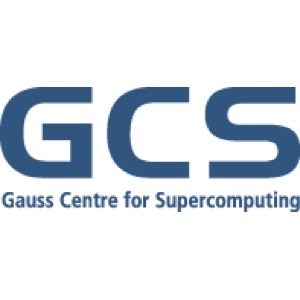 Today the Gauss Centre for Supercomputing (GCS) in Germany approved 30 large-scale projects as part of their 17th call for large-scale proposals. Combined, these projects received 2.1 billion core hours, marking the highest total ever delivered by the three GCS centres—the High Performance Computing Center Stuttgart (HLRS), Jülich Supercomputing Centre (JSC), and Leibniz Computing Centre of the Bavarian Academy of Sciences and Humanities (LRZ). In addition to delivering record-breaking allocation time, GCS also had a record number of proposals and allocations awarded
Today the Gauss Centre for Supercomputing (GCS) in Germany approved 30 large-scale projects as part of their 17th call for large-scale proposals. Combined, these projects received 2.1 billion core hours, marking the highest total ever delivered by the three GCS centres—the High Performance Computing Center Stuttgart (HLRS), Jülich Supercomputing Centre (JSC), and Leibniz Computing Centre of the Bavarian Academy of Sciences and Humanities (LRZ). In addition to delivering record-breaking allocation time, GCS also had a record number of proposals and allocations awarded
As we continue to provide world-class computing resources and user support at our three GCS facilities, our user base continues to expand based on the wide variety of excellent proposals we receive during each successive large-scale call,” said Dr. Dietmar Kröner, University of Freiburg Professor and Chairman of the GCS Scientific Steering Committee. “We have tough decisions to make, as we only have so many core-hours per year, and the proposals continue to get better each year.”
GCS awards large-scale allocations to researchers studying earth and climate sciences, chemistry, particle physics, materials science, astrophysics, and scientific engineering, among other research areas of great importance to society.
Of the 30 projects, four were granted allocations exceeding 100 million core-hours—another first for GCS—speaking to users’ increasingly strong command of making the best possible use of the various GCS centres’ flagship supercomputers.
Several of the largest allocations are benefiting from the variety of architectures offered through the three GCS centres:
- A team led by Dr. Matthias Meinke of RWTH Aachen University received a total of 335 million core hours—250 million at HLRS and 85 million at JSC—for a project dedicated to understanding turbulence, one of the last major unsolved fluid dynamics problems. The team studies turbulence as it relates to jet engine dynamics, and its research is focused on creating quieter, safer, more fuel efficient jet engines.
- A team of astrophysicists led by Dr. Hans-Thomas Janka of the Max Planck Institute for Astrophysics was granted 120 million core hours on LRZ’s SuperMUC system to simulate supernovas—the death and explosion of stars, and one of the main ways that heavy elements travel across the universe. In previous allocations, the team was able to create one of the first first-principle simulations of a 3D supernova, and plans to expand its research to more accurately understand the volatile, dynamic processes that govern the formation of neutrinos and gravitational waves occurring after a supernova.
- Supercomputing has become an indispensable tool in studying the smallest, most fundamental building blocks of matter known to man—the quarks and gluons that make up protons and neutrons, and, in turn, our world. A research group based at the Department of Theoretical Physics at the University of Wuppertal is benefitting from two separate allocations—one of which uses both HLRS and JSC resources, while the other is solely based at JSC—to more deeply understand the mysterious subatomic world:
- Dr. Szabolcs Borsányi leads a project aiming to make the first-ever estimate of sheer viscosity of the quark-gluon plasma—a novel state of matter that exists only at extremely high temperatures, making it very hard to study experimentally. The project was granted 35 million core hours on JSC’s JUQUEEN.
- Prof. Dr. Zoltán Fodor was granted 130 million core-hours on HLRS’s Hazel Hen and 78 million core-hours on JUQUEEN to support large-scale international experimental work being done at the Large Hadron Collider in Switzerland and the Relativistic Heavy Ion Collider in the United States. The team uses HPC to more fully understand phase transitions within quantum chromodynamics—the behaviour of subatomic particles under extreme pressure or temperature conditions.



